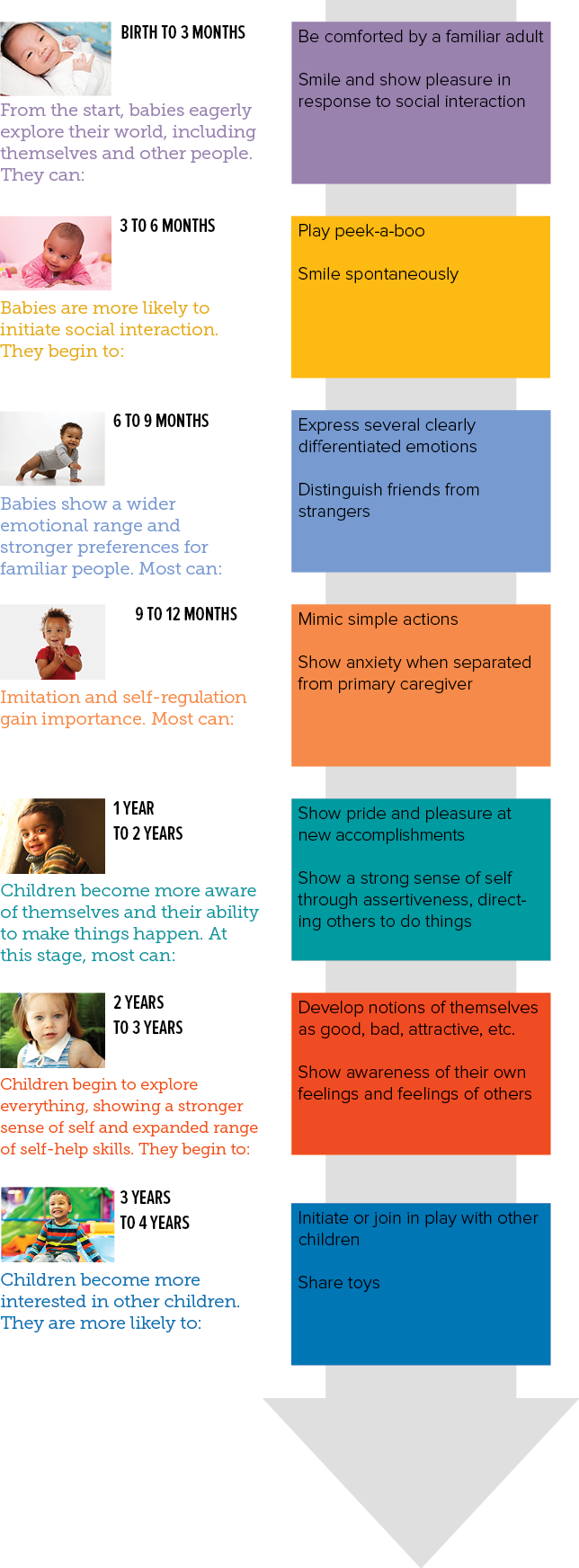 Source: bing.com
Source: bing.comAs a parent, it’s important to understand your baby’s emotional development stages, as they can greatly impact their overall well-being and future success. While babies may not be able to express their emotions verbally, they are capable of feeling a wide range of emotions from birth, and it’s your job as a parent to help them navigate and develop their emotional skills.
Table of Contents
Stage 1: Birth to 3 Months
During the first few months of life, babies experience a range of emotions, but they are unable to express them in a way that we can understand. At this stage, babies are highly dependent on their caregivers to meet their needs, and they begin to form strong attachments to those who care for them regularly. As a parent, it’s important to provide your baby with a safe and nurturing environment, responding to their cries and cues promptly, and providing plenty of physical touch and affection to help establish a sense of security and trust.
Stage 2: 3 to 6 Months
Around 3 months of age, babies begin to develop more social skills, and they become more aware of their surroundings. They may start to smile and engage with others, demonstrating joy and excitement in response to positive interactions. It’s important to continue providing your baby with plenty of social interaction and affection, as this can help to foster positive emotional development.
Stage 3: 6 to 9 Months
At around 6 months of age, babies begin to explore their environment more actively, and they may start to experience frustration and anger when they are unable to achieve their goals. It’s important to be patient and understanding during this stage, providing plenty of opportunities for your baby to explore and learn, while also offering comfort and support when they become upset or overwhelmed.
Stage 4: 9 to 12 Months
Around 9 months of age, babies begin to develop a sense of independence, and they may become more assertive in their interactions with others. They may also experience fear or anxiety around strangers or unfamiliar situations, so it’s important to offer plenty of reassurance and support during this phase. At this stage, babies may also begin to develop empathy and the ability to recognize and respond to the emotions of others.
Stage 5: 12 to 18 Months
As babies approach their first birthday, they begin to develop a more complex range of emotions, such as jealousy, guilt, and shame. They may also become more expressive in their communication, using gestures, facial expressions, and vocalizations to convey their feelings. It’s important to continue providing plenty of social interaction and support at this stage, as babies continue to develop their emotional skills and understanding of the world around them.
Stage 6: 18 to 24 Months
By the time babies reach 18 to 24 months of age, they are capable of experiencing a full range of emotions, and they are able to express their feelings more clearly. They may also begin to exhibit more complex social behaviors, such as sharing and cooperation, while also experiencing strong emotions such as frustration, anger, and sadness when their desires are not met. It’s important to continue providing plenty of support and guidance during this phase, helping your little one to navigate their emotions and develop healthy emotional coping skills.
Conclusion
Understanding your baby’s emotional development stages is an important part of being a parent, as it can greatly impact their overall well-being and success. By providing plenty of social interaction, comfort, and support, you can help your little one to develop strong emotional skills that will serve them well throughout their lives.
Frequently Asked Questions
Q: How can I help my baby develop emotional skills?
A: The best way to help your baby develop emotional skills is by providing plenty of social interaction and affection, responding to their cries and cues promptly, and providing a safe and nurturing environment.
Q: What are some signs that my baby is developing emotional skills?
A: Some signs that your baby is developing emotional skills include increased social interaction, responding positively to affection and attention, and exhibiting a range of emotions such as joy, frustration, and sadness.
Q: What should I do if my baby seems to be struggling with their emotions?
A: If your baby is struggling with their emotions, it’s important to provide plenty of support and guidance, offering comfort and reassurance when needed, and helping them to develop healthy emotional coping skills.
Q: Can a baby develop emotional problems?
A: Yes, like adults, babies can develop emotional problems such as anxiety and depression, particularly if they are exposed to stress or trauma. It’s important to provide plenty of support and guidance, and seek professional help if needed.
Q: At what age do babies begin to develop empathy?
A: Babies can begin to develop empathy as early as 6 months of age, but it is a gradual process that continues throughout childhood and adolescence.
